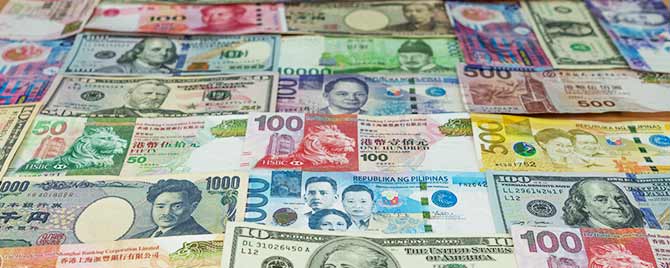SF Fed Blog
-

Views into Asia’s Foreign Indebtedness (Part One)
Recent developments in Argentina and Turkey have sparked concerns that other emerging market economies could be sitting on simmering vulnerabilities. A direct comparison of the region’s foreign debt finds that overall risk and apparent vulnerabilities are more contained in Asia relative to Argentina and Turkey. However, there are certain exposures in a handful of Asian economies that warrant close monitoring going forward.
-

Asia’s Open Banking Push
Countries around Asia are implementing laws and regulations to promote open banking to share data and enable third parties to provide products and services around a centralized platform. A move to open banking reflects the increasing digitization of Asia’s economy and the rise of technology platforms that envision a consolidated financial life for their customers. The impacts could be dramatic, increasing competition and promoting efficiency, integration, and inclusion, while also creating new risks.
-
Understanding the Financing Needs of Small Businesses in California
The Small Business Credit Survey (SBCS) asks small business owners to detail their current business climate, financial needs and recent credit experiences. A new report from the SF Fed summarizes data at the state level for small businesses in California.
-

Asia’s Emerging Virtual Banks
Several Asian regulators are amending existing rules to allow technology firms to own and run virtual banks, which will likely result in a number of new digital lenders. This has triggered debate and discussion about licensing requirements, risk management, and consumer protection.
-
Housing Stability and Family Health: Five Things to Know
A robust and growing body of literature points to the importance of pregnancy and early childhood as time periods that influence health, development, and long-term life chances. Less attention, however, has been paid to how housing instability during pregnancy and early childhood affects a person’s health over the long-term.
-

Can Asia’s Fintech Giants Reduce Remittance Costs?
As they transform the payment systems in countries like China and India, Asia’s fintech giants are now setting their sights on cross-border remittances. Will the new entrants drive costs down in a region dependent on payments sent home by overseas workers? A number of traditional financial institutions and non-bank start-ups are already trying to solve the problem, which could help promote equitable, inclusive growth in developing Asia.
-
Mary C. Daly Appointed New Bank President
The San Francisco Fed’s board of directors has chosen Mary C. Daly to become the Bank’s next president and CEO.
-
China Tightens Bad Loan Recognition Rules
China’s recent decision to tighten bad loan recognition standards is an important and necessary step to repair small lenders’ balance sheets. The decision also means there will likely be significant recapitalization needs among lenders down the road, in addition to expectations for slower bank loan growth.
-

Testing Time for Emerging Market Resilience
Indonesia’s economic fundamentals have improved considerably since the “taper tantrum”, with the International Monetary Fund (IMF) and ratings agencies sanguine about its performance. But as global financial conditions tightened this year, volatility seems to be on the rise again putting the resilience of emerging markets to the test.
-

Turning Dirty Cash Into Clean Energy
Bottles, cans, plastics, and paper probably come to mind when you think of recycling. But what happens to old U.S. currency?